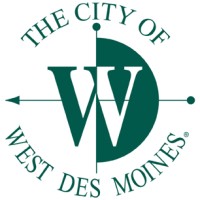Oakridge CEO shares highlights from 2024 annual report
Nonprofit seeing increase in community members seeking help with job placements

Oakridge Neighborhood’s recent 2024 annual update shows how the nonprofit meets needs in Greater Des Moines for infants and children all the way to seniors, President and CEO Deidre DeJear told the Business Record.

Oakridge Neighborhood was founded in 1969 as a public housing entity. Margaret Toomey, one of the organization’s first executive directors, decided Oakridge should also provide on-site human services like child care and workforce development.
That decision is one reason why DeJear believes Oakridge has thrived over the years.
“The other reason why we persist is because we evolve with the needs of our community,” DeJear said. “The first community members that came to live at Oakridge were members of the military community. In fact, they were coming to Iowa to get trained at Fort Des Moines. They were wanting to be captains and they couldn’t. There was a point in time in our history where it was very rare that women and people of color could train to be captains in the military. There were very few places in which they could do that — Fort Des Moines was one of those places — and so we started meeting the needs of those clients.”
Oakridge had 719 residents in 2024, according to the report, but 60% of the people it serves are nonresidents, DeJear said. The nonprofit offers services to community members in Polk, Dallas and Warren counties.
DeJear said despite recent economic challenges, Oakridge’s workforce programs have still been able to find job placements for their clients. They placed 162 clients in jobs in 2024 and another 387 were employment-ready, the report said.
“Even now with layoffs increasing in our community, we’re still above where we were [in 2024] in placements,” DeJear said. “Now, I’m not going to say that there’s more availability of work, but what I will say is that our clientele has increased in numbers by at least 25% since the start of [2025] compared to the amount of people that we would serve previously.”
In total, the nonprofit’s family and workforce programs served 2,094 unduplicated clients during 2024. Oakridge residents made up 39% of those served; 61% were other community members.
Oakridge also recently expanded its Oak Futures Youth Employment program to be open to young adults up to the age of 24. The cutoff age was 21 previously. Nearly half of the neighborhood’s residents are under the age of 18, according to the report.
The program, which has existed since the 1970s, partners with employers to offer part-time paid internships for either a nine-week stint or year-round.
“We fundraise to pay their wages, so we’re not asking businesses for that part. Now, will we accept resources there? Absolutely, we will, but more importantly, we just want them to create space for our youth to learn, to grow and to thrive,” DeJear said. “That takes some leaning in for those businesses, but the ones who have done it have benefited greatly.”
DeJear said the program provides youths and their families with supplemental income and the opportunity to gain work experience, including developing soft skills. The average household income of Oakridge residents was $21,261 in 2024, the report said.
The report shows 60 youths and young adults ages 14-21 participated in Oak Futures in 2024. DeJear said some youths have stayed on after their internships to work with local employers.
She said the shift toward apprenticeship-style youth employment programs creates opportunities for Oakridge youths but “we can’t neglect the importance of a traditional internship and what that could afford.”
“This is not only a program that is helping you gain experience, it’s helping companies and corporations and nonprofits get what they need out of a pretty smart workforce that’s ready to work,” she said.
DeJear said Oakridge is working to be a “problem-solver” in the housing space, adding 39 units to its campus in the last decade and partnering with lending institutions and other nonprofits to help clients become homeowners.
In the last two years, 14 clients have bought homes, she said.
“Some of those were conventional loans through banks and credit unions. Others went through Habitat [for Humanity]. Others went through Home Inc. and [Neighborhood Finance Corp.],” she said.
Other highlights from the annual report include:
- 1,092 families accessed Oakridge’s food pantry.
- 23 people participated in pathways to homeownership training.
- Oakridge engaged in 57 community partnership collaborations, which provided services valued at $647,095.
- Oak Studio, Iowa’s first Best Buy Teen Tech Center, served an additional 192 youths across the metro.
- The Oak Academy early learning and preschool center served up to 134 children throughout Greater Des Moines. 28% are Oakridge residents; 72% come from the broader community.
DeJear said her ongoing goal is to ensure that clients can tap into every service Oakridge has that they could benefit from.
“That means that we have to focus on upskilling staff, positioning staff to perform at their best,” she said. “That also means that we have to look at our systems and our approaches and how we work together collectively as an Oakridge ecosystem and then the other part is when we’re mapping our partnerships, finding intentional ways for our partners to engage with us.”

Sarah Diehn
Sarah Diehn is editor at Business Record. She covers innovation and entrepreneurship, manufacturing, insurance, and energy.









